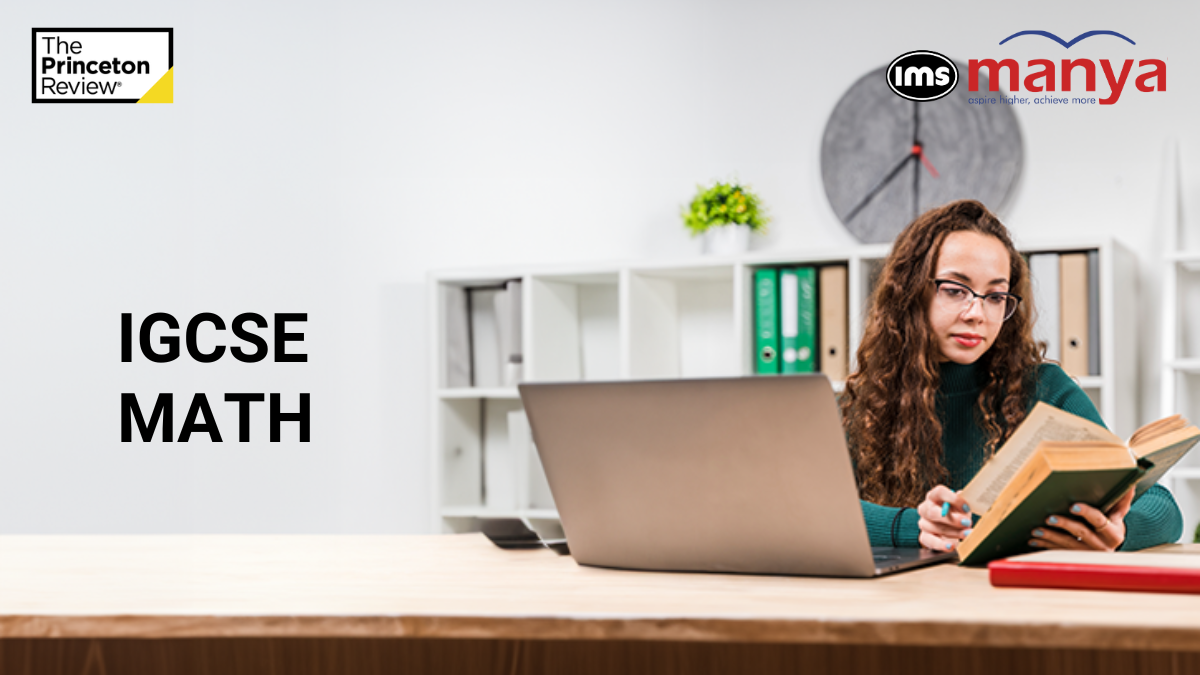IGCSE Math: Syllabus, Key Formulas & Exam Preparation

IGCSE Online Academic Tutoring plays a vital role in helping students develop essential skills such as logical reasoning, creativity, critical thinking, and effective problem-solving. The IGCSE Math subject plays an important role in the development of mathematical knowledge as a key life skill and a strong foundation that gives students the ability to learn and think logically in any field, be it Science, Technology, or Engineering.
The IGCSE Maths syllabus emphasizes mathematical concepts, methods, and skills with a sense of numbers, patterns, and relationships. It encourages students to explore mathematical relationships, patterns and structures while gaining confidence in using numbers and problem-solving strategies.
IGCSE Math Syllabus Overview
The IGCSE Maths syllabus consists of topics divided into 10 sections:
- Basic Number Theory
- General Geometry
- Measurement
- Algebra
- Equations
- Functions and Graphs
- Trigonometry
- Probability and Statistics
- Transformation Geometry
- Matrices and Vectors
Expert IGCSE Math Tutors – Personalized Online Support
Our experienced team of ICSE Online Math tutors is dedicated to help students succeed by:
- Setting clear academic goals tailored to individual needs.
- Strengthening core mathematical concepts and fundamentals.
- Providing step-by-step guidance and doubt clarification
- Offering targeted practice using IGCSE Math past papers and assignments.
Whether you’re revising with IGCSE Math notes, referring to the IGCSE Math textbook, or preparing for exams, our online tutoring ensures that every student gains the confidence and competence to excel.
Understanding the IGCSE Math Cambridge Grading Scale
The IGCSE Maths Cambridge Grading Scale offers two distinct systems: the 9-1 grading scale and the A-G grading scale*. Once a student is enrolled under a specific grading system, switching between IGCSE 9-1 and A-G* is prohibited after the official registration deadline.
If a candidate mistakenly selects the wrong IGCSE Maths grading scale, the correction must be made before the entry deadline. After this point, Cambridge will not accept any changes—such as moving from the A-G scale* to the 9-1 scale or vice versa. It’s crucial to carefully choose the correct IGCSE grading system during registration to avoid delays or disqualifcation.
The IGCSE Math Cambridge Changes to Assessment
| Change to Assessment | Paper 1 | Paper 2 | Paper 3 | Paper 4 |
| Total marks | 80 marks | 100 marks | 80 marks | 100 marks |
| Duration | 1 hrs 30 mins | 2 hrs | 1 hrs 30 mins | 2 hrs |
| Item Type | Structural with nonstructural questions | Structural with nonstructural questions | Structural with nonstructural questions | Structural with nonstructural questions |
| Other information | Calculator
not allowed Candidates answer all questions 50% of the total for Set |
Calculator
not allowed Candidates answer all questions 50% of the total for Set |
Calculator
not allowed Candidates answer all questions 50% of the total for Set |
Calculator
not allowed Candidates answer all questions 50% of the total for Set |
Formula Sheet Now Included in All IGCSE Math Exam Papers (0580)
Cambridge has officially introduced a formula sheet in the IGCSE Math exam across all paper types. From now on, students will receive a formula sheet at the front of every question paper, whether they are sitting for Core or Extended papers. This change applies to all series of the IGCSE Math exam, making it easier for students to focus on applying concepts rather than memorizing complex formulas.
The inclusion of IGCSE Math formula sheet ensures consistency and supports candidates in solving structured and unstructured questions more effectively. The formula sheet is designed to cover all relevant topics from IGCSE syllabus and will be provided in Paper 1, Paper 2, Paper 3 and Paper 4.
Assessment Objective (AQs) in the Cambridge IGCSE Math
Core Qualification of the AQs
| Assessment objectives as a percentage of the Core qualification | |
| Assessment objective | Weighting in IGCSE % |
| AO1 Demonstrate knowledge and understanding of mathematical techniques | 60–70 |
| AO2 Reason, interpret and communicate mathematically when solving problems | 30–40 |
Extended Qualification of the AQs
| Assessment objectives as a percentage of the Extended qualification | |
| Assessment objective | Weighting in IGCSE % |
| AO1 Demonstrate knowledge and understanding of mathematical techniques | 40–50 |
| AO2 Reason, interpret and communicate mathematically when solving problems | 50–60 |
Frequently Asked Questions
What type of math is in IGCSE?
IGCSE Mathematics covers a wide range of topics, offering students a strong foundation in the subject. The syllabus includes alegbra, geometry, trigonometry, calculus, statistics and probability.
Is IGCSE math difficult?
IGCSE math difficulty varies for students. With consistent practice and understanding of concepts like algebra, geometry and statistics, it becomes manageable.
How to get A* in IGCSE maths?
To get an A* in IGCSE Maths, master core concepts, practice past papers regularly, manage time efficiently, focus on weak areas, and apply problem- solving techniques with accuracy and speed during exams.
How many exams for IGCSE maths?
IGCSE Maths typically has two exam papers: Paper 1 (short- answer questions) and Paper 2 (structured problems). Some variants include three papers, depending on the syllabus and whether it’s core or extended.
Are calculators allowed in IGCSE maths 2025?
Yes, calculators are allowed in IGCSE Maths 2025 for certain papers, such as paper 2 and paper 4. However, some papers are non-calculator to test mental arithmetic and problem-solving skills.



